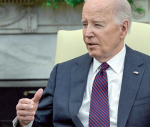You are here
Preventing extremist violence
May 14,2017 - Last updated at May 14,2017
The causes of violent extremism in Jordan can be attributed to a complicated combination of factors, like an economy strained by the influx of Syrian refugees since 2011, high unemployment rates and a growing, radicalising, Daesh influence on some young people.
Extremist violence is an affront to the values of civil society, whose mission is to maintain peace, promote democracy, human security, sustainable development and human rights.
And while being threatened by violent forms of extremism, civil society actors in Jordan, often rooted within the communities they work with, are specifically well placed to tackle its root causes.
Their mandate lies in protecting, representing and empowering vulnerable groups in society.
Jordanian civil society can prevent the development of extremist violence by fostering a culture of diversity, open dialogue and social justice.
Also, through advocacy, they play a fundamental role in strengthening fair, effective, accountable and inclusive institutions at all levels.
In Jordan, civil society’s efforts are now combined into a single body: the Observatory to Prevent Extremist Violence (OPEV).
This body was founded in early 2017 as a result of the Barcelona Conference held in January 2017.
More than 320 representatives of 172 civil society organisations and social movements from the Euro-Med region convened during this conference where they discussed reducing extremist violence and developed action plans to work towards a society free of violent extremism, through civil society engagement and through identifying shortcomings in governments security strategies in recent decades.
OPEV in Jordan consists of several members: Jordan National Commission for Women, the Arab Renaissance for Democracy and Development, East West Centre, Penal Reform International, Durrat Al Manal for Development and Training, Shoman Foundation and Leaders of Tomorrow and NOVACT Institute for Nonviolent Action.
These organisations seek to involve civil society organisations in Jordan in creating spaces that provide necessary alternatives to violent extremism.
OPEV and its members see an urgent need for integrated action between civil society and official national institutions to address all forms of violent extremism.
The government is currently revising its national counter-terrorism strategy and is expected to share it with the public soon.
Although the government’s main approach to combating violent extremism has been to tighten security regulations and repressive legal policies, resulting in human rights violations, it also developed a framework for civil society actors to play a role.
However, this framework is very limited; it does take the experiences of civil society into account but gives it no possibility to work as an independent actor in partnership with the government.
Civil society actors in Jordan are well placed to develop a viable national action plan that complements the priorities of the government, but the space for civil society to operate is shrinking.
The government thus needs to provide space for civil society organisations to be able to play their role. It also needs to be monitored and held accountable by civil society actors that are well rooted in Jordan.
It is now time for civil society actors to claim their role and to develop an inclusive approach that, rather than combating the symptoms, focuses on preventing the root causes of extremist violence.
The writer is the general director of ARDD. She contributed this article to The Jordan Times.












